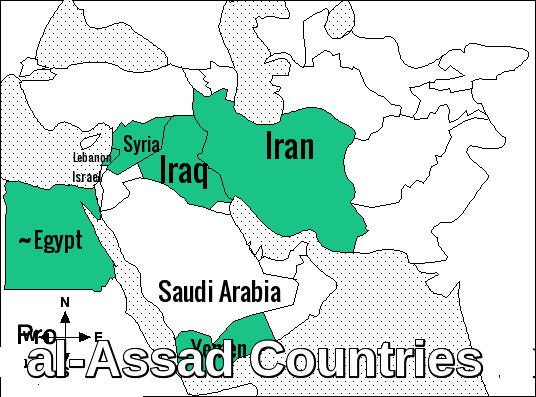With Fall of Aleppo, will a Russo-Iranian Middle East challenge Trump?
On Thursday, the Syrian government announced that the last of those who wanted to be evacuated from the East Aleppo pocket had been bused out, and that the Bashar al-Assad regime had reestablished complete control over the entire city of Aleppo.
Bashar al-Assad in his remarks on this development acknowledged that it was a triumph for his Iranian and Russian allies. Iran recruited Lebanon’s Hizbullah party-militia as well as several Shiite militias from Iraq, and also sent in some displaced Afghans resident in Iran. Russia gave intensive air support to the rebels.
The result is a huge victory for Iran and the Russian Federation over their foes, the Sunni and Wahhabi powers of the six-nation Gulf Cooperation Council, and over Turkey.
Turkey was in the position of the employee who angrily responds to being fired by saying, “You can’t fire me; I quit!” Turkey met with Russia and Iran this week in Moscow, in an effort to find a resolution to the Syrian civil war, which has killed some 400,000 people and displaced 11 million. But since Turkey’s main interests these days are in shutting down support abroad for separatist Kurds (the PKK), and making sure that the YPG leftist Syrian Kurds don’t become independent or even somewhat more autonomous, Turkey allowed the East Aleppo pocket to be recovered by the regime without two much fuss. Only the local Sunni Arabs had fought almost to the end.
It now appears that the Syrian rebels have no ability to overthrow the capital of Damascus, and that Syria will remain in the control of the one-pary Baath state.
The victory of Bashar al-Assad suits Iraq, ruled by the Shiite Da’wa Party. Although Da’wa, which provides the prime minister (Haydar al-Abadi) might ordinarily despise the secular, socialist Baath Party, both of them are allied against Sunni fundamentalism.
That al-Assad will stay also pleases Lebanon’s president, Michel Aoun, a Christian political ally of Syria and of the Hizbullah party-militia.
The Houthi-Ali Abdullah Saleh alliance in north Yemen is also cheered. They are fighting against Saudi Arabia’s attempt to impose itself on Yemen, including on its Shiite Zaydis.
Even Egypt under Gen. Abdel Fattah al-Sisi, which had been allied after the 2013 coup with Saudi Arabia, has jumped ship and given its support to al-Assad. The Saudis, who had paid Egypt billions in aid, where furious at being thus jilted. Al-Sisi has also developed good relations with Putin, who won’t pressure him over his authoritarian governing style or those silly human rights. Egypt is a strongly Sunni country and not by any means part of the so-called Shiite crescent, but it is backing al-Assad (which shows again the uselessness of the idea of a Shiite crescent Syrian secular Baathists aren’t ‘Shiites!’

The losers aside from Saudi Arabia, Kuwait, Bahrain and Qatar include Israel and Jordan, both of them heartily anti-Iran.
The Russo-Iranian Middle East would have been a challenge to President Obama’s vision of the area, but it isn’t clear that it would bother Trump. Trump has argued in the past for turning Syria over to the Russians.
The big contradiction here is that Trump has nominated extreme anti-Iran conspiracy theorists to his administration. Gen. Mike “Mad Dog” Mattis, appointed to Sec. of Defense, has suggested that Iran created Daesh (ISIS, ISIL), which is sort of like alleging that the papacy was and continues to be behind the Lutheran church.
Likewise incoming National Security Adviser Mike Flynn is a big anti-Iran figure.
So while Trump himself has indicated an ability to live with a Russo-Iranian Middle East, his cabinet will be made extremely upset by it.